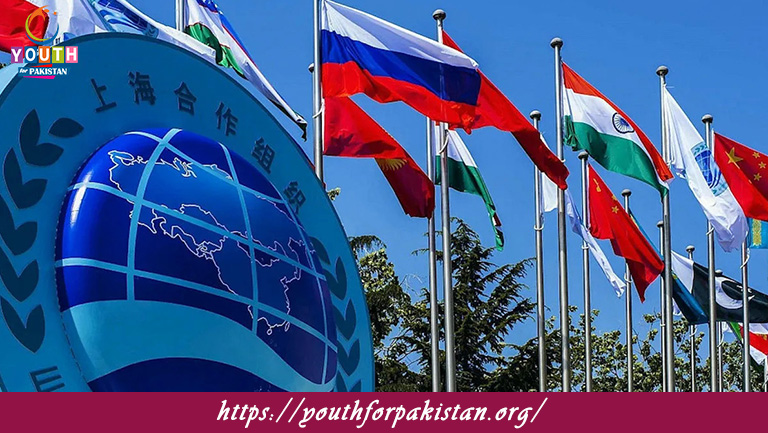Shanghai Cooperation Organization is one of the most influential intergovernmental organizations dedicated to political, economic, and security intercourse development among members. Established in 2001, the SCO falls into the category of the most influential organizations in Eurasia, considering that SCO means the key player in regional security and economic balance.
The Shanghai cooperation Organization: Bridging Asia and Eurasia
Owing to SCO’s ever-growing influence in the world, it works with the member countries and identifies their common concerns, like terrorism and extremism and regional instability.
Key Founding Members of the SCO
Originating as the six countries of China, Russia, Kazakhstan, Kyrgyzstan, Tajikistan and Uzbekistan, the SCO developed from the “Shanghai Five” group. The initial agreement began as a means of solving border issues and fostering further cooperation within the post Cold War era. However, the group would eventually expand to address issues that gained interests beyond the security and economic core focus. By 2001, the Shanghai Cooperation Organization became an actual organization that sought to deepen trust and stability in the region.
Growth Over Time
Since its inception, the SCO has taken in new members and observer states, and it thus became a larger, more flexible organization. The group was only able to increase its power, up to 2017, with the addition of India and Pakistan. Currently, the SCO includes eight full members: the founders plus India and Pakistan-and a few observer states, among them Afghanistan, Belarus, and Mongolia.
Core Objectives of the SCO
Basically, SCO aims at achieving the three above-overarching objectives: security cooperation, economic collaboration, and cultural integration. Being a mutually trusted and cooperative organization, it becomes a basis for both short-term and long-term challenges in countries operating under its member status.
Rebuild Security Cooperation
Improving Regional Security is a core issue of SCO. Due to close cooperation among SCO members in combating terrorism, separatism, and extremism, this organization has become the much-needed critical platform of building joint strategy and initiative due to threats posed by these problems, mainly for Central Asia.
Encourage Economic Cooperation
More importantly, however, it shifts from a focus on security concerns to economic cooperation. Its membership is mainly interested in having agreements over trade and mega-infrastructure projects to be implemented further for economic growth and connectivity in the region. China’s BRI is in line with this vision of deepening connectivity and trade between participating regions.
Social and Cultural Cooperation
Yet another good role of SCO is cultural exchange. As the organization tries to enforce unity in the region through fostering greater understanding of the states, it also enables cultural cooperation among education, arts, media, and more, allowing the sharing of knowledge to further strengthen the bonds between members.
The SCO: Regional Security Cooperation
Security has been at the center of the SCO’s mission. The organization has come up with highly advanced mechanisms in dealing with regional threats.
Joint Counterterrorism Cooperation
But the most important function of the SCO is counteraction against terrorism. It is a regional anti-terrorist structure created by member countries to share intelligence and coordinate joint actions against terror. Here lies cooperation that proves necessary, since security is connected with Afghanistan and its neighbour states.
Military Exercises and Strategic Alliances
SCO member states come together for annual joint military exercises to strengthen the force of collective defense. Beyond military cooperation, such exercises also serve as an exhibition platform for other threats. In the battle of maintaining peace and fighting against terror, the SCO plays its part in stabilizing the region through better military preparedness.
Economic cooperation in the SCO
Of course, security is a necessity, but economic cooperation is another core objective of the SCO. They well know that long-term security and prosperity depend much on the economy.
Trade Treaties Between Members
For the past couple of years, the SCO has enabled many trade agreements to break down some barriers and integrate the economies of its states further. That includes the energy, agriculture, and manufacturing industries, thus making an even stronger regional economy.
Investment Initiatives and Infrastructure Development
The other sector through which SCO shines brightly is in infrastructure investment. The organization has espoused enormous projects in rails, energy pipelines, and digital infrastructures. Such projects primarily target the augmentation of connectivity across the regions and hence power more economic growth. China’s Belt and Road Initiative constitutes a central component of this plan and is in stark alignment with the targets of SCO.
Role SCO in Cultural and Educational Exchanges
Besides its security and economic goals, the SCO pays special attention to the area of the cultural and educational spheres of cooperation.
Encourage Cross-Cultural Awareness
This SCO organizes cultural festivals, art exhibitions, and educational forums to enhance the level of awareness and mutual understanding among member countries. Rich and diverse cultures are thus celebrated in this region and thus make their social fabric stronger.
Education and Youth Cooperation
Education is one more priority area. SCO would sponsor student exchanges and scholarships, bring in more youth from member states to receive education in other countries. It would look forward to an improvement toward better mutual understanding of diverse cultures and foster the next generations of leaders in the region of SCO.
Regional Peace and Stability
The SCO plays a most crucial role in maintaining peace and stability in Eurasia. With respect to it, it provided mechanisms for clear solutions of conflicts and encouragement of dialogue within its members.
Conflict Resolution Mechanisms
Perhaps among the most essential roles SCO plays is preventing and settling conflict among its members. An extremely bitter case in point comprises disagreements between India and Pakistan; SCO has been a neutral platform for discussion and settlement of issues amicably.
The SCO Approach to Regional Conflicts
Therefore, the approach of this organization towards resolving regional disputes will be much centered on diplomacy, dialogue, and respect for sovereignty, all targeted to bring down tension and ensure that conflict should not destabilize the broader region.
An observer’s role and role of dialogue partners
Even though SCO’s core members head the organization, observer states and dialogue partners contribute substantially to the same.
Contributions by Observer States
Observers include Afghanistan, Iran, and Belarus. The status allows these countries to discuss regional initiatives without necessarily being a full member; this has led to the SCO becoming a melting pot of views, especially on the issues of security and economic cooperation.
Symbiotic dialogue partners and future perspectives
At the same time, it opens SCO further to more global views through Turkey and Sri Lanka dialogue partners to bridge the gap that exists between the regions. This also gives room for enlarging the organization in the future for its influence globally.
SCO Role in Global Politics
The SCO is not just a regional player but also the fast-growing world force in global politics.
SCO’s View on International Issues
The SCO has assumed clear positions on a variety of international issues, including terrorism, climate change, and economic development. The greater global influence assumed by the member states of the SCO means that its voice is increasingly viewed as a reflection of Eurasian worldviews toward universal challenges.
Relations with the West and Other Global Organizations
The SCO has been often seen as a counterbalance to Western alliances such as NATO. Though it professes principles of multilateralism, to others, it presents a challenge to Western supremacy in world affairs. At the same time, though, the SCO worked with international organizations, such as the United Nations in solving issues affecting the globe.
The Expansion of the SCO
SCO has witnessed manifold growth since its very inception.
Newcomers and the Impact of Enlargement
The incorporation of India and Pakistan has dramatically expanded the scope of the organization drastically. Along with more political and economic influence, it brought new complications due to the turbulent history associated with the two nations.
Implication of Expansion to the Company’s Goals:
As the SCO expands, it will have a role in international affairs; however, this will be challenging to bring together diverse interests of member states with unity.
Effects of SCO on Regional Development
The SCO does have direct implications in regional development, although the most direct is through mega-infrastructure projects.
Better connectivity and regional growth
This link will therefore bring the region closer together by concentrating on transportation and communications networks; trade and investment, serving as the base for growth.
Infrastructure Projects and Economic Corridors
For example, cross-border initiatives such as the China-Pakistan Economic Corridor have been considered one of the very crucial and most significant projects associated with the SCO pertaining to achieving regional development. It aims at easy flow of trade routes and promotes economic cooperation.
Challenges faced by the SCO
Like any other international organization, the SCO too has its share of challenges.
Inner Conflicts Among Members
It also has internal disagreement among its members, especially the ones who have historical conflicts with each other such as India and Pakistan, and also the political system that results in different economic objectives.
International pressure and geopolitical tensions
In fact, the SCO is already exerting pressure from outside, because global powers-the United States and the European Union-see its growth as threatening their influence. Political tension due to the activities of the group, especially in relation to the West, becomes something that lingers.
The Future of the SCO
It will expand its influence further in the future.
Areas of Growth and Influence
The SCO would probably broaden its priorities to include cyber space, climate change, and cooperation in the digital economy. It is through the tackling of these global challenges that the organization will shine on the world stage.
Security and Economic Cooperation: New Directions
Therefore, the SCO would be called on to indulge deeper into security and economic cooperation, especially with greater membership as well as greater global roles.
Critics of the SCO
The SCO has, however been criticized since its inception.
Criticisms against Authoritarianism and Human Rights Violation
The SCO has been criticized in several fronts as an undemocratic coalition that assists repressive regimes to survive and suppress dissent. Organizations committed to human rights criticize the SCO approach towards civil liberties, as well as political liberties.
Transparency and Accountability Issues
Even the openness of some of the operations being carried out by the SCO is questioned. The critics feel that it should have much more accountable and democratic processes for decision-making instead.
Conclusion
In a nutshell, the Shanghai Cooperation Organization plays a very important role in imparting security, economic cooperation, and cultural understanding across Eurasia. Despite facing significant challenges, the SCO will continue to make upward expansion of influence both within regional and international spheres. Considering the importance the SCO places on cooperation and mutual respect, it will be the organization that shapes international relations in this region for generations.
FAQs
- What is the primary purpose of the SCO? The SCO focuses on strengthening security, promoting economic cooperation, and fostering cultural exchange among its member states.
- Who are the founding members of the SCO? The founding members include China, Russia, Kazakhstan, Kyrgyzstan, Tajikistan, and Uzbekistan.
- How does the SCO contribute to global security? The SCO contributes through joint counterterrorism efforts, military exercises, and security cooperation among its members.
- What role does the SCO play in economic development? The SCO promotes trade agreements, infrastructure development, and investment initiatives that enhance regional connectivity and economic growth.
- What challenges does the SCO face? The SCO faces internal challenges like balancing member interests and external pressures from global powers like the U.S. and the EU.




